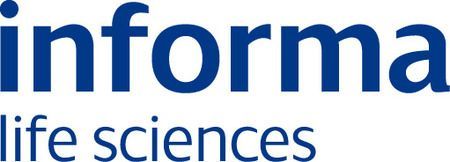Press release -
Europe's Leading Meeting for Bioprocessing Announces Biosimilars, Antibody Drug Conjugates and New Processing Technologies as Key Themes for 2013
The pursuit of Biosimilars, Antibody-Drug Conjugates and New Processing Technologies will set the trend for biomanufacturing in 2013; so says research from the industry's leading conference and exhibition, BioProcess International Europe.
According to in-depth interviews with over 100 bioprocessing professionals working within process and technology development, novel therapies such as antibody drug conjugates and the global demand for biosimilars will be the driving innovation in both bioprocess and analytical development.
- Antibody Drug Conjugates - ADCs are currently at the forefront of therapeutic development and combine the cell-killing ability of a cytokine with the specificity of a monoclonal antibody. Creating a successful ADC requires careful selection of the drug, the toxin and the linker, but most importantly companies must produce these therapies to commercial scales, a key theme of BPI Europe 2013. Experts believe they are poised to become the next major therapies, as evidenced by a steadily increasing clinical-phase pipeline of ADC candidates.
- Biosimilars - Biosimilars have huge potential to reduce healthcare costs, expand access to biologics and improve affordability. However, there are many obstacles to overcome, not least the regulations; processing and analytical technologies have also advanced such that companies can't easily use the same process as an originator company. Overcoming these challenges and demonstrating comparability and quality to the regulators is a key theme of BPI Europe 2013
- New Processing Technologies - Companies spend approximately $1.5bn to bring a biologic to market with upstream and downstream processing departments often pressurised to keep costs to a minimum. Recent years have seen innovations in cell line development, recovery and purification, but the industry is still searching for quicker, cheaper, more robust processing methods. Which technologies will succeed and why?
Other noticeable trends that appeared during the research include an increased move towards high throughput process development, rigorous management of raw materials, continuous processing, single-use systems, flexible manufacturing and new, more sensitive analytical technologies.
"Despite its conservative nature, the bioprocessing industry remains one of the most innovative industries in the world. BPI Europe 2013 remains the conference of choice for companies showcasing the latest scientific developments in manufacturing, upstream, downstream processing and analytical method development and our new conference streams on biosimilar production and antibody drug conjugates will demonstrate this even further," said conference programme manager, Daniel Barry .
Organised by Informa Life Sciences, leaders in scientific conferences and exhibitions, BPI Europe 2013 brings together leaders from biotech, CMOs, CROs and academics to discuss the new processes, technologies and strategies driving every stage of biomanufacturing, from lab to commercial development.
BPI Europe 2013 will take place on the 17th and 18th April 2013 at the Swissotel Hotel in Dusseldorf, Germany. With a sold-out attendance in 2012, delegates and exhibitors are encouraged to secure their place quickly by registering online. For more information on how to register or to download a copy of the programme, please visit http://www.informa-ls.com/event/bpi2
Topics
- Health, Health Care, Pharmaceuticals
Categories
- antibody drug conjugates
- downstream processing in biopharmaceuticals
- bioprocessindustri
- cell culture
- biosimilars
Please contact james.miguel@informa.com for further info
